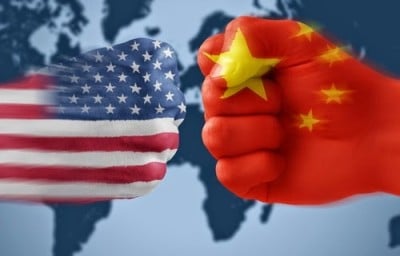America’s Largest Creditor: Will China End U.S. Trade War with a “Debt Reset”, by Dumping U.S. Treasury Holdings?

Note to readers: please click the share buttons above
One of the reasons why it has seemed so bizarre that the United States would engage in a trade war with its largest creditor in China, is that China has a move that the United States simply can’t defend against.
In terms of any sort of engagement between the United States and China, for at least the last decade or so, it’s always seemed to me that China has an incredibly large amount of leverage over the United States. To the degree that if push comes to shove, China has available actions that the U.S. simply has no answer to.
For the simple reason that they do have the ability to end the U.S. Treasury scheme at any point in time. Because if China did just dump its U.S. Treasury holdings, that would very well likely end the debt bubble overnight.
Of course things are not always quite so simple. Because that means China would take a massive loss on its own position. And to the degree that such an event would also have an impact on global economic conditions, it’s a nuclear option not to be exercised lightly.
My best guess is that the Chinese would prefer an environment of free and fair trade, where everyone prospers. Yet to the degree that if they are pushed into a corner, they do have the ability to respond.
Because the situation is somewhat analogous to someone who has found themselves in a gambling debt that’s larger than they could conceivably imagine a way to be free of. And the lender is faced with the choice of continuing to extend more credit, or accepting that further borrowing is just going to increase the ultimate loss.
Of course if China has also been taking steps to mitigate the impact of such an action, that would further suggest that whether they have to use such an option or not, they have quietly insulated themselves from the fallout, should such an option need to be used.
In terms of prepping for a trade war with the U.S., China has implemented several important steps. For example, for at least the past 10 years the country has been shifting away from a pure export economy and reducing its reliance on sales of goods to the U.S. In 2018, Chinese consumer purchases of goods are expected to surpass that of American consumers. For the past five years, domestic consumption in China accounted for between 55% to 65% of economic growth, and private consumption was the primary driver of the Chinese economy — NOT exports.
The argument that China is somehow dependent on U.S. markets and consumers in order to keep its economy alive is simply a lie. China is now just as enticing a retail market as the U.S., and its domestic market can pick up some of the slack in the event that U.S. markets are suddenly closed to Chinese exports.
This was part of an excellent article by Brandon Smith of alt-market.com, and it’s really worth reading and considering. He raises a lot of points that I have agreed with for a long time, and feel are not often voiced as publicly as some of the other perspectives out there.
Again, you would like to think that the world can agree on a fair and just economic system without resorting to further escalation of a trade war. Yet more and more I continue to wonder if some sort of debt reset, or global default is not rapidly becoming inevitable.
Although perhaps in the end it’s all digital and paper money at this point anyway. Which has long ago lost touch with underlying economic reality. And hopefully when the bubbles collapse, what rises from the ashes will be a monetary system that serves the people, rather than the banking cartel.
It’s interesting to note that in Venezuela where the currency collapse is already in a later stage than that of many of the developed paper currencies, reports of the people going back to a barter economy continue to surface.
Similar to what happened in this fascinating Greek Village (that I actually had the blessing of visiting in person back in 2014), where once again it was evident that even when the paper currencies collapse, what’s valued is our true natural abilities and contributions.
I continue to remain fascinated to see how all of the events ultimately unfold. And I agree with Brandon Smith, that whether it’s ultimately used or not, China does have knockout punch to which the U.S. cannot respond.
*
Chris Marcus is a former Wall Street options trader turned Austrian Economist and writer.

